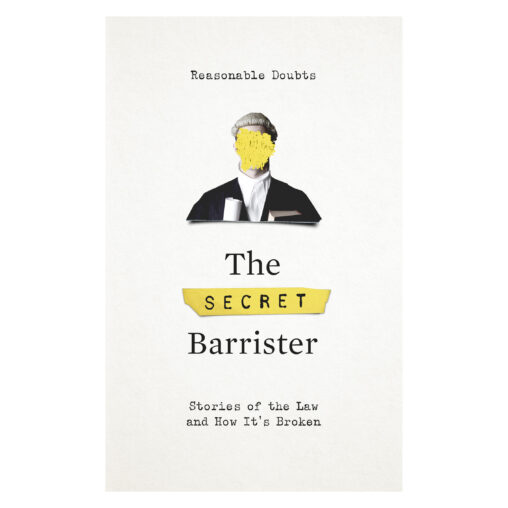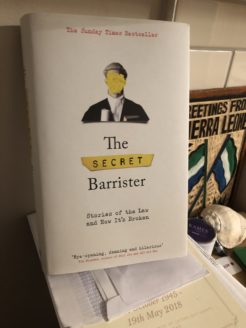

His style is a blend of pomposity and self-deprecation that is remarkably evocative of many characters at the bar.

The Secret Barrister writes compellingly about issues as varied as the treatment of vulnerable victims in rape trials and the state of sentencing law – no mean feat. In one of its most effective passages, the author points to platitudes about putting victims first, now such a staple of government rhetoric, contrasting them with the actual preference of political leaders, which is to offer taxpayers one penny off the price of beer rather than invest the equivalent amount into a system without which rights can never be properly upheld. But what’s so powerful about The Secret Barrister is its ability to connect the dots – from changes to something as seemingly mundane as criminal procedure rules, to the state of prisons – revealing a picture that is more a commentary on society as a whole than it is on robing rooms full of horsehair wigs. As a former criminal barrister myself, I expected this book to communicate how little we value the people and institutions so vital to our liberty. Rape trials have collapsed because police and prosecutors – all victims of the same, sabotaging cuts – have failed to disclose key evidence on which a fair and robust defence depended. Since 2010, 258 courts have shut across England and Wales. Whole areas of law, including family, housing, immigration, debt and employment, have been taken outside the realm of publicly funded legal representation, leaving some of the most vulnerable people at the mercy of a system that is designed to be incomprehensible to even the most highly educated lay person. Over the last near decade of austerity, justice has endured the deepest cuts of any departmental spending in the UK. “Despair” is the experience of another in the court of appeal. “Hell” is the word used by one supreme court judge.

It is above all a plea to rescue a justice system that has become utterly broken. The book is in part a guide to the system – a reminder of how few of us understand it – and in part a first-hand account of the personal dilemmas facing someone whose professional life is spent in and out of crown courts, police cells and prisons.

This is a portrait of the criminal justice system in England and Wales today, as seen by the Secret Barrister, a criminal advocate who keeps his identity a closely guarded secret so that, he argues, he can be unrestrained in his critique.


 0 kommentar(er)
0 kommentar(er)
